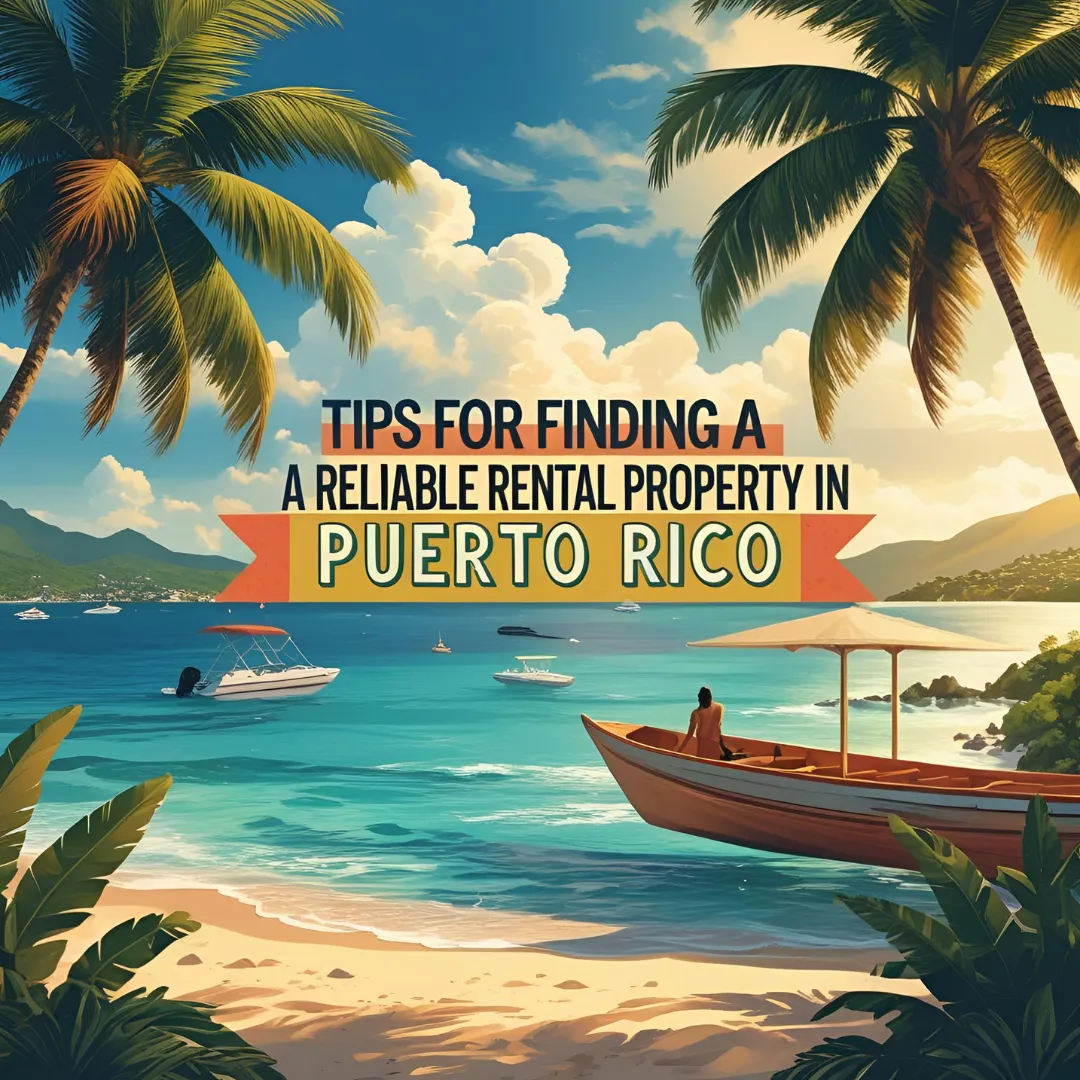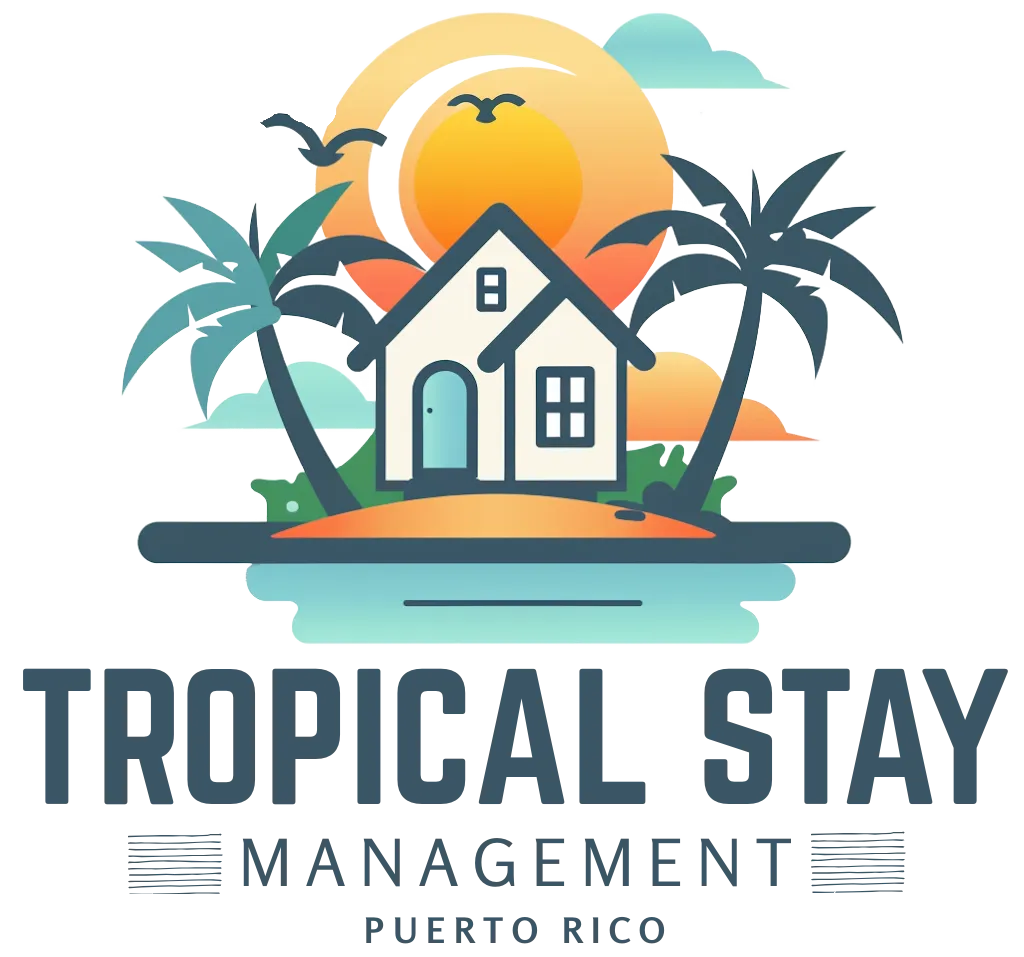
Tips for Finding a Reliable Rental Property in Puerto Rico
Tips for Finding a Reliable Rental Property in Puerto Rico
Spoiler: It involved a lot of bad decisions, one unforgettable landlady, and accepting that sometimes "close enough" is perfect.
Okay, so here's the deal. I moved to Puerto Rico thinking I'd found this gorgeous place online, right? Wrong. What I found was a humid box with neighbors who apparently hosted karaoke competitions until 3 AM and a shower that only worked when Mercury wasn't in retrograde.
But plot twist – that terrible first rental taught me more about finding a place here than any guide ever could. Three apartments, two nervous breakdowns, and one absolutely perfect little house later, I've got thoughts.
First Things First: This Isn't Kansas, Dorothy
The rental game here operates on different rules. In Chicago, where I'm from, you email, you schedule a viewing, you sign papers, boom. Here? My current landlord Carmen found me through her daughter's friend who works at the panadería where I buy my morning coffee. Carmen doesn't use email. She WhatsApps photos when she feels like it. And honestly? She's the best landlord I've ever had.
Point being: throw out everything you think you know about how this works.
My first place came through one of those "professional" listing sites. Looked legit, had all the right documents, and the deposit went through smoothly. Then I showed up and discovered my "ocean view" was technically accurate if you climbed onto the roof and squinted really hard past the auto shop next door.
What I Actually Needed vs. What I Thought I Needed
Originally, I had this whole list: walking distance to beach, modern kitchen, fast WiFi, quiet neighborhood. Ha. Turns out what I really needed: reliable power, decent cell service, neighbors who'd help me figure out why my water pressure sucked, and someone to call when the coquí frogs drove me insane those first few weeks. (Pro tip: you stop noticing them after a month, and then you miss them when they're quiet.) My current place? It's 15 minutes from the beach. The kitchen is from 1987, but the WiFi works, I've got a backup generator, and Carmen brings me mangoes from her tree. That mango tree wasn't on any of my lists, but it's become my favorite thing about living here.
The Neighborhood Crash Course Nobody Gives You
San Juan: Expensive, convenient, feels like a real city. Old San Juan is beautiful but good luck sleeping through cruise ship days. Condado is where people go to feel fancy and pay mainland prices.
Rincón: Surfer town. Everyone's really chill until they're not getting waves, then everyone's grumpy and the coffee shops run out of oat milk.
Dorado: Golf courses and gated communities. Nice if you're into that scene. I lasted two weeks before I got claustrophobic.
The mountains: Gorgeous, cooler, but my phone had no signal and getting an Uber was basically impossible. Great if you want to disappear from the world for a while.
I picked Luquillo because it's got beach access, decent restaurants, and I can get to San Juan when I need civilization. Plus the locals actually talk to you instead of just tolerating you.
Where I Look Now (And Where I Wasted My Time)
Facebook Marketplace: Don't. Just don't. I fell for three different scams before I learned. One guy had me convinced I was renting a penthouse in Condado for $800/month. Spoiler: penthouses in Condado don't go for $800/month.
Airbnb: Good for getting started, terrible for long-term budgets. But here's the hack – message hosts directly after a week or two and ask about monthly rates. A lot of them prefer stable tenants and will cut deals that aren't posted anywhere.
Word of mouth: This is how I found Carmen. Started chatting with Maria at the bakery about my housing disasters, she mentioned her mom had a place, next thing I know I'm getting the family tour and eating homemade pasteles while negotiating rent.
Local property managers: Hit or miss. Some are great, some are basically just collecting checks and disappearing when your AC breaks. Ask for references and actually call them.
Red Flags I Learned to Spot (The Hard Way)
If someone wants money before you've seen the place, nope. If they can't tell you basic stuff like who handles repairs or what the electric bill usually runs, nope. If they won't do a video call because they're "traveling," super nope.
But here's a weird one: if the price seems too good, it probably is, but if it seems too expensive, that might be weird too. I looked at this place in Dorado that was asking crazy money for what was basically a studio with delusions of grandeur. Turned out the owner was trying to recoup some bad investment and had no idea what the local market looked like.
My financial journey here:
First place (the disaster): $950/month for a one-bedroom in Rincón that felt like living inside a humidifie
Second place: $1,400/month in Condado, nice but I was basically paying for location and nothing else
Current place: $1,100/month for a two-bedroom house in Luquillo with a yard, parking, and Carmen's mango tree
But the hidden costs will get you. My first electric bill was $280 because I didn't understand that running AC here isn't like running it in Chicago. Water bills are usually cheap unless you've got a leak (which I did, for three months, because nobody told me that constant trickling sound wasn't normal).
The Internet varies wildly. In some places you'll get fiber speeds, in others you'll be fighting for two bars of cell service. If you work online, test this stuff before you commit.
Hurricane Season: Not as Scary as CNN Makes It Look
My first hurricane season, I panic-bought enough water for a small army and spent two weeks checking weather apps every hour. Reality check: most storms don't hit directly, and when they do, the community aspect here is incredible.When Fiona came through, my whole neighborhood turned into a mutual aid society. Carmen checked on everyone twice a day, neighbors shared generator power for charging phones, and someone always had coffee going. It's actually kind of beautiful how people take care of each other.That said, don't be stupid about it. Have water, have batteries, have cash, have a plan. But don't let hurricane anxiety keep you from living here. It's part of the deal, and locals will teach you how to handle it.
The Stuff That Actually Matters Day-to-Day
Parking: Even if you don't have a car now, you might want one later. Street parking in beach towns during tourist season is basically The Hunger Games.
Laundry: Laundromats exist but they're expensive and time-consuming. Having your own setup is worth the extra rent.
Water pressure: Sounds minor until you're trying to rinse shampoo out of your hair with what feels like a light mist.
Noise: This island is loud and alive. Dogs, roosters, music, people actually talking to each other – if you need library-quiet to sleep, invest in a good white noise machine.
My Actual Advice
Start with something short-term in the area you think you want. Give yourself at least a month to figure out the rhythm of the place. Don't commit to anything long-term until you've been through a power outage, a heavy rain, and at least one local festival.Find someone local to help you navigate this. It doesn't have to be a fancy property management company – sometimes it's just making friends with your neighbors or the person who runs the corner store.And honestly? Embrace the chaos a little bit. My place in Chicago was perfect on paper but sterile as hell. Here, the hot water takes five minutes to kick in and sometimes iguanas hang out on my porch, but I wake up to ocean sounds and Carmen occasionally leaves plantains by my door. There's something to be said for trading perfect logistics for perfect moments.
The Questions People Actually Ask Me
Did you visit first?
Nope, moved sight unseen like an idiot. Do better than me. If you absolutely can't visit, at least have someone local check it out in person. Photos lie, especially about size and noise levels.
How's your Spanish?
Terrible when I got here, slightly less terrible now. You can survive with English in touristy areas, but learning Spanish opens up way more options and helps you actually connect with people instead of just existing parallel to them.
Any regrets?
Just one – I wish I'd started talking to locals sooner instead of trying to figure everything out through Google. The best advice I got came from random conversations at the grocery store, not rental websites.
Look, finding a place here isn't going to go exactly like you planned. It's going to be messier and weirder and probably more expensive than you budgeted for. But if you can roll with it, you might end up with something better than what you originally wanted.I'm writing this from my back porch, watching Carmen's grandson teach his friends to surf while her chickens wander around my yard like they own the place. This wasn't on my vision board, but it's exactly where I need to be.

